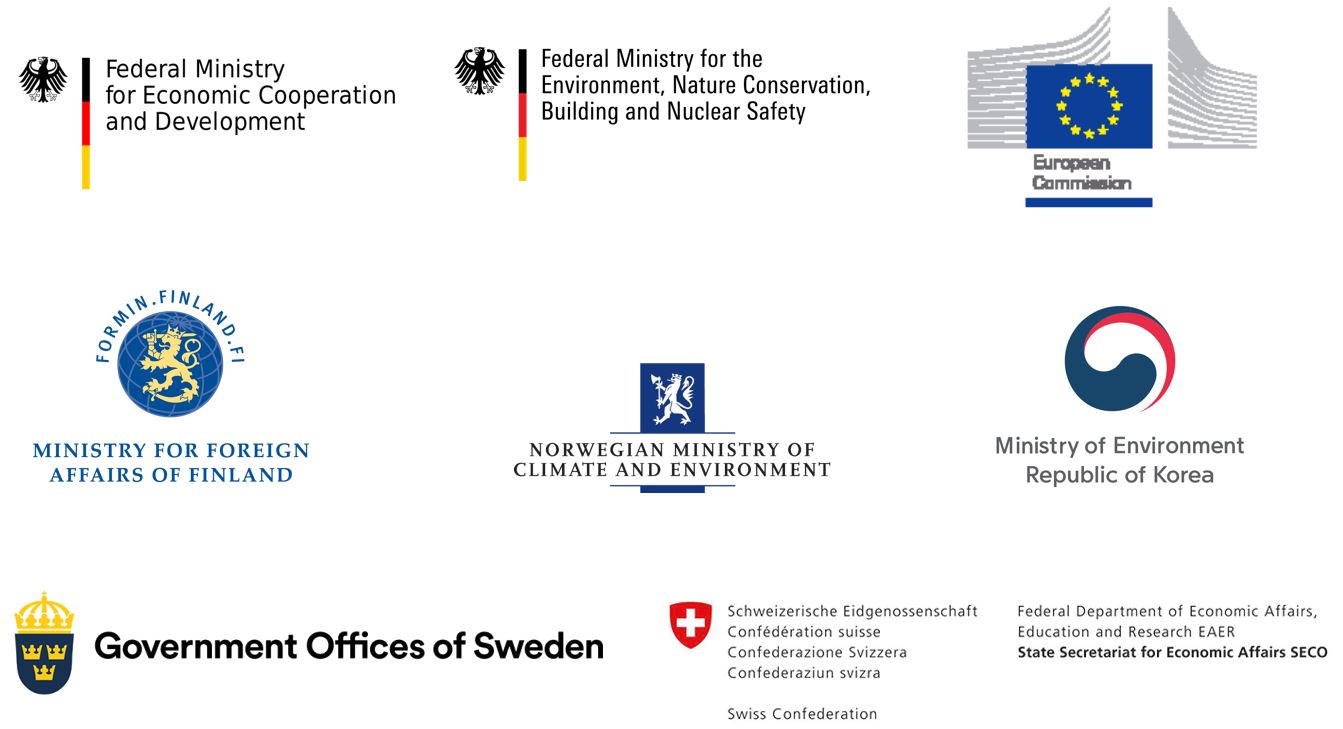Welcome to Introduction to Sustainable Finance!
This interactive and practice-oriented course, originally developed in 2018 and comprehensively updated in 2021, covers the basics of Sustainable Finance while providing several opportunities to dive deeper. The course covers sustainable finance instruments, methodologies and frameworks for integrating sustainability into financial decisions, key global sustainable finance initiatives, and sustainable finance regulations. It is designed for interested participants from governments, academia, the financial sector, businesses, and civil society.
Support climate change literacy
We want to continue our crucial journey to equip people with the skills and knowledge needed to make informed decisions, to act and to fight climate crisis.
DonateLearning Objectives
- Explains the potential contribution of sustainable finance to achieving the Sustainable Development Goals and the goals of the Paris Agreement on Climate Change;
- Explains the core concepts of sustainable finance and the relevance of sustainability considerations for the key actors in the financial system;
- Describes the role that regulation and industry initiatives (self-regulation) play in shaping sustainable finance;
- Describes different sustainable finance products, such as bonds and loans, that may be available to provide the capital needed to support the delivery of the Sustainable Development Goals and the goals of the Paris Agreement on Climate Change.
The course at a glance
This course is presented in four modules:
-
1. Sustainable Finance in Context
Two lessons describing the role that sustainable finance can play in delivering global goals on climate change and development.
-
2. Fundamentals of Sustainable Finance
Five interactive lessons explaining the core concepts of sustainable finance and the relevance of sustainability to finance sector decision-makers.
-
3. Sustainable Finance: Regulation and Self-regulation
Three interactive lessons analysing the role that regulation and industry initiatives (self-regulation) play in shaping sustainable finance.
-
4. Sustainable Finance Products
Six interactive lessons describing some of the products, such as bonds and loans, that may be available to provide the capital needed to support the delivery of the Sustainable Development Goals and the goals of the Paris Agreement on Climate Change.
Get your UN certificate!
To complete the course and get your certificate, you will need to:1. Take and pass four quizzes with minimum 70%
2. Download your certificate directly from the 'Certification' page
This course was originally developed in 2018 by Skandinaviska Enskilda Banken (SEB) and Deutsche Gesellschaft für Internationale Zusammenarbeit (GIZ) GmbH, as part of their Strategic Alliance (STA) on Green Bond Market Development in G20 Emerging Economies, and the Partnership for Action on Green Economy (PAGE), a One UN initiative bringing together five UN agencies.

In 2021, the course was comprehensively updated with funding support from the German Federal Ministry for Economic Cooperation and Development (BMZ). We would further like to acknowledge STA and PAGE funding partners who made the development of the initial course possible:
A special thanks to the following institutions for their technical contributions, review, time, and commitment:

Deutsche Gesellschaft für Internationale Zusammenarbeit (GIZ) GmbH
GIZ is a German public-benefit federal enterprise that works jointly with governments, international organisations, businesses, civil society actors and research institutions worldwide to foster international cooperation for sustainable development. Through develoPPP.de programmes, GIZ works, on behalf of the German Federal Ministry for Economic Cooperation and Development, with the private sector to support innovative projects in developing and emerging economies for sustainable development. In the field of sustainable finance, GIZ’s approach is to help create enabling framework conditions through policy and reform processes to promote the development of sustainable financial products, and to raise awareness and capacities through training, research and peer learning.
Skandinaviska Enskilda Banken AB (SEB)
In 2007/2008, the Nordic financial services group SEB AB collaborated with the World Bank and a number of other institutional investors to develop the World Bank’s first green bond. SEB subsequently led several innovative Green Bond issuances, including the first municipal green bond, the first non-supranational green bond and the first corporate green bond. SEB is one of the founding banks of the Green Bond Principles and is a member of the Green and Social Bonds Executive Committee. In addition, SEB has played an active role in the development of other sustainable finance instruments, such as social bonds and loans, and sustainability-linked products. Both SEB and SEB’s clients have received a large number of awards for their sustainable finance instruments from institutions such as Global Capital, Environmental Finance and IFR.
More about the Partnership for Action on Green Economy (PAGE)
The Partnership for Action on Green Economy (PAGE) seeks to put sustainability at the heart of economic policies and practices to advance the 2030 Agenda for Sustainable Development. It supports nations and regions in reframing economic policies and practices around sustainability to foster economic growth, create income and jobs, reduce poverty and inequality, and strengthen the ecological foundations of their economies. PAGE brings together five UN agencies – the UN Environment Programme, the International Labour Organization, the UN Development Programme, the UN Industrial Development Organization and the UN Institute for Training and Research – and offers integrated and holistic support to countries on building inclusive green economies. PAGE’s funding partners include the European Union, Germany, Finland, Norway, the Republic of Korea, Sweden and Switzerland.
More about the United Nations Environment Programme Finance Initiative (UNEP FI)
The United Nations Environment Programme Finance Initiative (UNEP FI) is a partnership between UNEP and the global financial sector to mobilise private sector finance for sustainable development. UNEP FI works with more than 450 members, including banks, insurers, investors, and over 100 supporting institutions, to help create a financial sector that serves people and planet while delivering positive impacts. By leveraging the UN’s role, UNEP FI accelerates sustainable finance.
More about the Strategic Alliance on Green Bond Market Development (STA)
The Strategic Alliance on Green Bond Market Development in G20 Emerging Economies was a develoPPP.de partnership between SEB AB and GIZ, with technical support from CICERO. From 2016 to 2019, the STA supported the development of robust and sustainable green bond markets in emerging economies.


